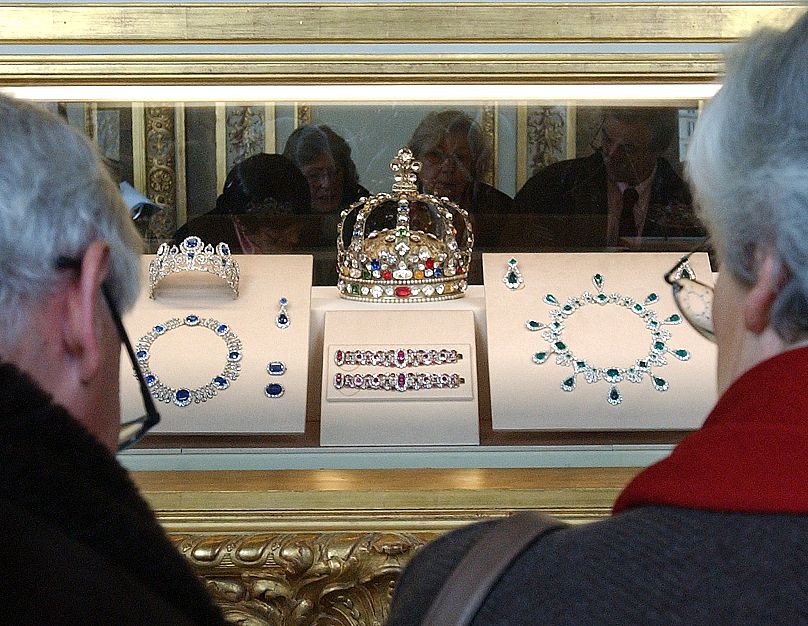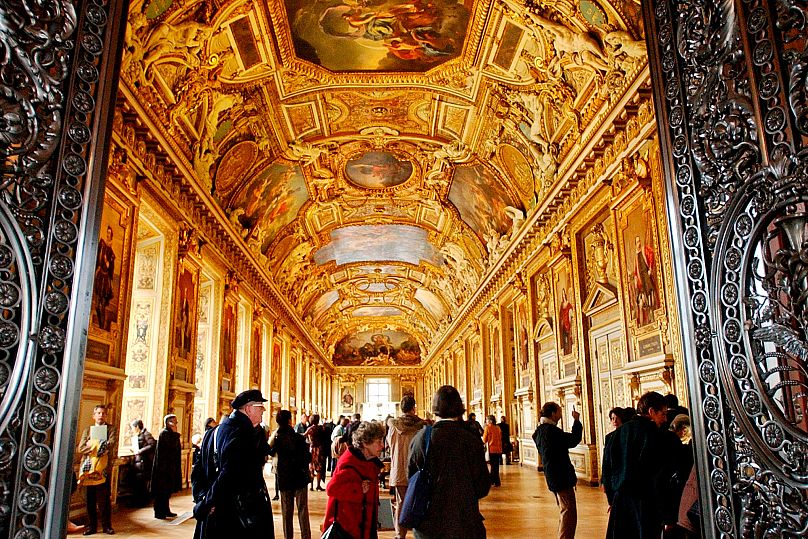France's Interior Ministry said that around 9.30am several intruders forced open a window, stole jewels from vitrines and fled on two-wheelers.
France's world-famous Louvre museum in Paris was forced to close on Sunday after thieves broke into the Apollo Gallery and stole valuable crown jewels.
 ADVERTISEMENT
ADVERTISEMENT
 ADVERTISEMENT
ADVERTISEMENT
The robbery which took place at around 9.30am lasted between six and seven minutes, and involved four people who were unarmed, but threatened guards with angle grinders, according to Paris Prosecutor Laura Beccuau.
French President Emmanuel Macron reacted to the robbery on X, he wrote "The theft committed at the Louvre is an attack on a heritage that we cherish because it is our History. We will recover the works, and the perpetrators will be brought to justice."
Interior Minister Laurent Nuñez said the thieves used a basket lift to access the room directly, forced a window and broke display cases to steal the jewels, before escaping on two-wheelers.
He said forensic work is underway and a precise inventory of the stolen objects is being compiled, adding that the items have “inestimable” historical value.
Culture Minister Rachida Dati wrote on social media there were "no injuries to report," adding "I am on site alongside the museum teams and the police. Investigations under way."
In a post on X the Louvre confirmed it will be closed "for exceptional reasons".
The daylight heist about 30 minutes after opening, with visitors already inside, was among the highest-profile museum thefts in living memory, in what Dati described as a professional “four-minute operation.”
Officials said nine pieces were targeted but eight were stolen, from the Napoleon and the Empress's jewellery collection in the Apollo Gallery, including a necklace, a brooch, a tiara and more.
One object was later found outside the museum, Dati said. French media identified it as the emerald-set imperial crown of Napoleon III’s wife, Empress Eugénie, containing more than 1,300 diamonds. It was reportedly recovered broken.
The Apollo Gallery is a vaulted hall in the Denon wing that displays part of the French Crown Jewels beneath a ceiling painted by King Louis XIV’s court artist.
One witness, Kaci Benedetti, described in a post on X scenes of panic inside the museum as people tried to exit when police arrived.
The Louvre has a long history of thefts and attempted robberies. The most famous was in 1911, when the Mona Lisa vanished from its frame, stolen by Vincenzo Peruggia, a former worker who hid inside the museum and walked out with the painting under his coat. It was recovered two years later in Florence — an episode that helped make Leonardo da Vinci’s portrait the world’s best-known artwork.
In 1983, two Renaissance-era pieces of armor were stolen from the Louvre and only recovered nearly four decades later. The museum’s collection also bears the legacy of Napoleonic-era looting that continues to spark restitution debates today.
The Louvre is home to more than 33,000 works spanning antiquities, sculpture and painting — from Mesopotamia, Egypt and the classical world to European masters. Its star attractions include the Mona Lisa, as well as the Venus de Milo and the Winged Victory of Samothrace.












